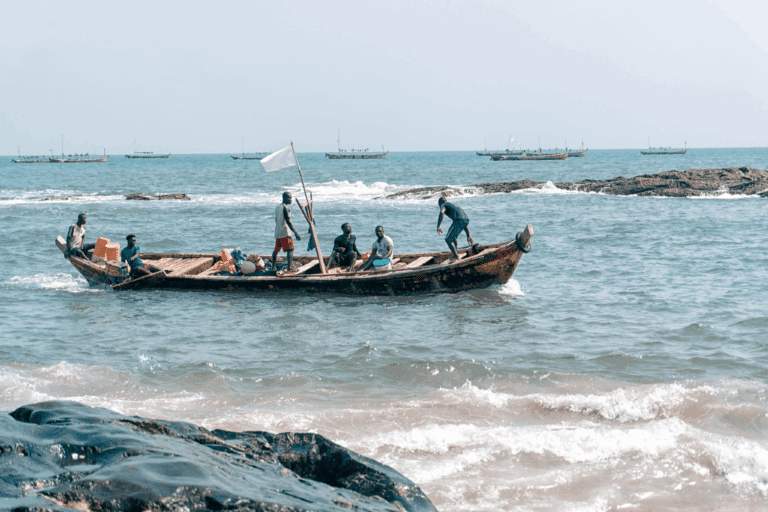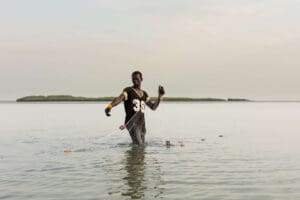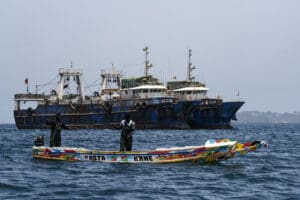President John Dramani Mahama has signed the Fisheries and Aquaculture Act into law, extending protection for artisanal fishing grounds and tightening controls on illegal industrial trawling in a landmark move for Ghana’s coastal communities and ocean justice.
Ghana has taken a historic step to safeguard its ocean and the millions of people who depend on it. Act 1146, enacted this week, marks a turning point for small-scale fishers by strengthening protections for nearshore waters, clamping down on illegal fishing, and setting a new benchmark for West Africa.
For decades, fisheries have been Ghana’s lifeline. They provide around 60 percent of all animal protein consumed nationally, anchor coastal livelihoods, and drive local economies. But that foundation has been crumbling. Populations of small pelagic fish, an everyday staple for households, have collapsed to less than 10 percent of their 1990s levels. Artisanal catches, once the backbone of Ghana’s marine harvest, have been steadily eroded by industrial trawlers encroaching into inshore zones. Food security, coastal resilience, and the future of fishing communities all hang in the balance.
The new law seeks to reverse this decline. It creates an independent Fisheries Commission to oversee management, doubles the Inshore Exclusive Zone from six to twelve nautical miles to shield artisanal fishing grounds, introduces tougher penalties for illegal fishing, and raises welfare standards for fishing crews. These measures not only protect Ghana’s small-scale fishers, but also safeguard the country’s seafood exports—worth more than $425 million a year—from the threat of international sanctions.
The Act’s passage caps years of advocacy and political will. Ghana signalled its intent on the global stage at the UN Ocean Conference in 2025, pledging to defend small-scale fisheries and rein in industrial fleets. Parliament approved the bill in July, despite resistance from trawler interests, and the President’s assent has now turned those commitments into binding law.
Ahead of the signing, Blue Ventures met with the Ministry of Fisheries and Aquaculture Development to discuss how the organisation could support implementation. Both parties underscored the importance of community engagement, stronger local enforcement systems, and investment in data and science to underpin management decisions. The Ministry also highlighted the need for education campaigns to build public awareness of the law and the opportunities it creates for small-scale fishers. Blue Ventures shared lessons from its global programmes, where community surveillance and traditional governance structures have played a decisive role in fisheries reform.
For Blue Ventures, Ghana’s reform represents a powerful example of the systemic change it seeks to catalyse: reducing the grip of industrial overfishing while creating space for communities to lead in governing their fisheries.
“This law protects all territorial seas, places coastal communities as key to future governance, and comes at a critical time as fisheries continue to decline,” said Prudence Wanko, Blue Ventures’ Regional Director for West Africa. “The President’s action is a concrete demonstration of true leadership. We call on other nations in West Africa to follow Ghana’s example and protect food security and livelihoods for generations to come.”
The task ahead will be to ensure the law delivers on its promise. That means resourcing local enforcement, raising awareness across fishing communities and markets, and investing in research to track stocks and measure progress. It also means supporting women and young people in coastal economies and using nature-based solutions such as mangrove restoration to build long-term resilience.
Ghana’s move sends a strong signal beyond its own borders. Across West Africa, industrial overfishing continues to devastate livelihoods and undermine food security. By putting communities at the heart of governance, Ghana has positioned itself as a regional leader and set a clear course for a new era of fisheries management that the rest of the region cannot afford to ignore.


















